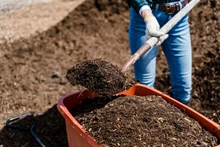
A zoonotic disease is a disease that can be passed from animals to people. A person may become infected with an animal disease indirectly (flies, mosquitoes, ticks, and fleas) or directly (through close contact between animals and humans). Zoonotic diseases are very common as animals provide us with food, serve as a companion, and even provide valuable services.
However, animals tend to be carriers of harmful germs that can spread to people and cause illnesses. And we might come into contact with infected animals in either urban or rural settings, during travel, while visiting animal exhibits, eating meat, or while enjoying outdoor activities.
Types of Zoonotic Diseases
Lyme Disease
Lyme disease is a vector-borne disease that is caused by the bacterium Borrelia burgdorferi. It is transmitted to humans through a bite of infected black-legged ticks. Symptoms include fever, fatigue, headache, and a skin rash. If the disease is left untreated, the infection can spread to joints, the heart, and the nervous system. This disease can be prevented by using insect repellent, removing ticks promptly, applying pesticides, and reducing tick habitat.
Brucellosis
Bovine brucellosis is a contagious disease of livestock typically caused by Brucella abortus which may also infect people. It is considered an occupational hazard for people who work in the livestock sector, such as farmers, butchers, hunters, laboratory personnel, and veterinarians. However, human-to-human transmission is very rare. In human beings, brucellosis causes flu-like symptoms, including fever, malaise, weight loss, and weakness. The incubation period of the disease is usually 2 to 4 weeks and there are several medicines to treat the disease.
Rabies
Rabies is a fatal but preventable viral disease. It can spread to people and pets if they are bitten or scratched by a rabid animal. The rabies virus infects the central nervous system. When left untreated, the virus can cause disease in the brain,leading to death. . Rabies can be prevented by vaccinating pets, staying away from wildlife, and seeking medical care after potential exposure.
Plague
Plague is a disease that affects humans and other mammals. It is caused by the bacterium, Yersinia pestis. A plague is caused in humans after being bitten by a rodent flea that is carrying the plague bacterium or by handling an animal infected with the plague. Without prompt treatment, the disease can cause serious illness or death.
How are Zoonotic diseases transmitted?
Zoonotic diseases are usually transmitted through the air.
These diseases can be contracted by eating contaminated meat or produce.
It can be contracted through insect bites like mosquitos or ticks.
They can be contracted by touching an area or surface that an infected animal touched.
Zoonotic diseases can also be caused by close contact with an infected animal.
How to Prevent Zoonotic Diseases
Practice food safety
To prevent zoonotic diseases, do not consume unpasteurized milk and milk products, do not consume meat from an animal that died of an illness, properly refrigerate and handle uncooked meat and eggs, and cook meat and fish to appropriate internal temperature.
Pay attention to animal health
If you take care of animals, then it is important that you are up to date on their vaccinations, veterinary visits, and parasite prevention. When your animals are sick, separate them from healthy animals, contact your veterinarian, and properly dispose the dead animals. Also, observe your animals for signs of disease, such as unusual behaviour, blisters, nasal discharge, coughing, sneezing, weakness, and not drinking or eating properly.
Disinfect surfaces to prevent the spread of disease
Clean and disinfect surfaces that an infected animal has touched. Clean and disinfect animal cages, pens, and non-disposable protective equipment, including borrowed equipment with detergent and household bleach. Also, it is important to dry on a clothesline in sunlight or in an automatic clothes dryer.
Wash your hands
After handling healthy and unhealthy animals, wash your hands with warm water and liquid bar soap. Make sure to clean your fingernails, between fingers, and under jewellery. You can also use alcohol-based hand sanitizer if soap and water are not available.











